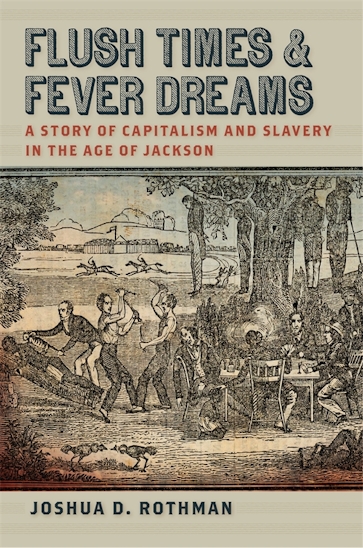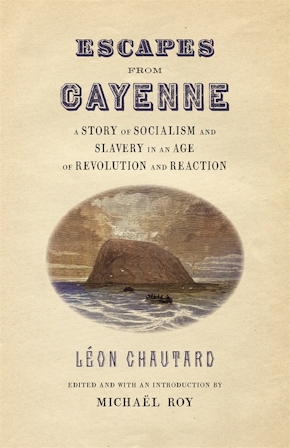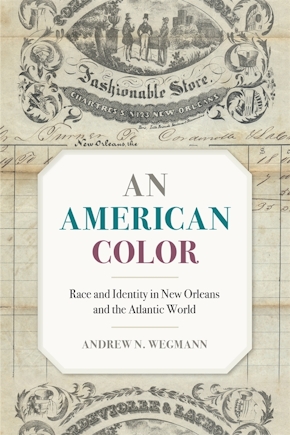Flush Times and Fever Dreams
A Story of Capitalism and Slavery in the Age of Jackson
Title Details
Pages: 440
Illustrations: 14 b&w photos
Trim size: 6.000in x 9.000in
Formats
Paperback
Pub Date: 05/01/2014
ISBN: 9-780-8203-4681-6
List Price: $30.95
eBook
Pub Date: 11/01/2012
ISBN: 9-780-8203-4466-9
List Price: $30.95
Subsidies and Partnerships
Published in association with Library Company of Philadelphia
Published with the generous support of Sarah Mills Hodge Fund
Flush Times and Fever Dreams
A Story of Capitalism and Slavery in the Age of Jackson
Skip to
- Description
- Reviews
- Awards
In 1834 Virgil Stewart rode from western Tennessee to a territory known as the “Arkansas morass” in pursuit of John Murrell, a thief accused of stealing two slaves. Stewart’s adventure led to a sensational trial and a wildly popular published account that would ultimately help trigger widespread violence during the summer of 1835, when five men accused of being professional gamblers were hanged in Vicksburg, nearly a score of others implicated with a gang of supposed slave thieves were executed in plantation districts, and even those who tried to stop the bloodshed found themselves targeted as dangerous and subversive. Using Stewart’s story as his point of entry, Joshua D. Rothman details why these events, which engulfed much of central and western Mississippi, came to pass. He also explains how the events revealed the fears, insecurities, and anxieties underpinning the cotton boom that made Mississippi the most seductive and exciting frontier in the Age of Jackson.
As investors, settlers, slaves, brigands, and fortune-hunters converged in what was then America’s Southwest, they created a tumultuous landscape that promised boundless opportunity and spectacular wealth. Predicated on ruthless competition, unsustainable debt, brutal exploitation, and speculative financial practices that looked a lot like gambling, this landscape also produced such profound disillusionment and conflict that it contained the seeds of its own potential destruction. Rothman sheds light on the intertwining of slavery and capitalism in the period leading up to the Panic of 1837, highlighting the deeply American impulses underpinning the evolution of the slave South and the dizzying yet unstable frenzy wrought by economic flush times. It is a story with lessons for our own day.
Published in association with the Library Company of Philadelphia’s Program in African American History. A Sarah Mills Hodge Fund Publication.
A dramatic and human narrative of a nearly forgotten time—when the quest for cotton dominated American commerce, and the expansion of slavery corrupted the American soul.
—Douglas A. Blackmon, winner of the Pulitzer Prize for Slavery by Another Name
Wall Street looms so large for Americans, especially lately, that it’s easy to forget that its peculiar characters and cultures—from bankers and speculators to shysters and swindlers—grew up in the South before the Civil War. By revisiting the Age of Jackson and the land rush following Indian removal, Joshua D. Rothman follows the money to reveal the cultural history of modern American capitalism. A master storyteller and researcher, Rothman digs up amazing (and often hilarious) tales of real strivers who made, missed, and lost fortunes. Flush Times and Fever Dreams reminds us how thin the line has always been between investor and gambler, success and failure.
—Scott A. Sandage, author of Born Losers: A History of Failure in America
This is at once a cultural history of storytelling, a social history of slavery and slave stealing on the Mississippi, a history of gambling, and a compelling microhistory of a man who couldn’t stop trying to narrate himself into fame and fortune. Flush Times and Fever Dreams is a fascinating, well-written, and beautifully plotted book.
—Scott Reynolds Nelson, author of Steel Drivin’ Man: John Henry, the Untold Story of an American Legend
The true history of the Cotton Kingdom before the Civil War was no less bizarre and bloody than anything [Django Unchained] has to offer. [A] new book by [an] excellent historian, Joshua Rothman's Flush Times and Fever Dreams . . . reveal[s] that slave owners' wild fantasies had deadly practical consequences.
—Adam Rothman, Daily Beast
Overall, Rothman presents an engaging, page-turning account of the development of the Old Southwest. . . . Flush Times and Fever Dreams stands as an important contribution to antebellum history and helps us understand the true dimensions of how the southern frontier developed.
—James J. Gigantino II, Arkansas Historical Review
[Flush Times and Fever Dreams] provides college-level American history readers with a specific examination from a master storyteller . . . this offers a vivid portrait of American Southwest history and is a solid pick for any history holding seeking lively scholarship.
—California Bookwatch
Rothman . . . tells a series of gripping and often grisly tales of [1830s Mississippi]. . . . Rothman tells these stories well, evoking a sense of social and psychological context for the main historical actors, so that the actions described become understandable, to the extent that delusional mob behavior can ever be understood.
—Gavin Wright, Civil War Book Review
Winner
Michael V. R. Thomason Best Book of the Year, Gulf South Historical Association
Winner
Frank L. and Harriet C. Owsley Award, Southern Historical Association



